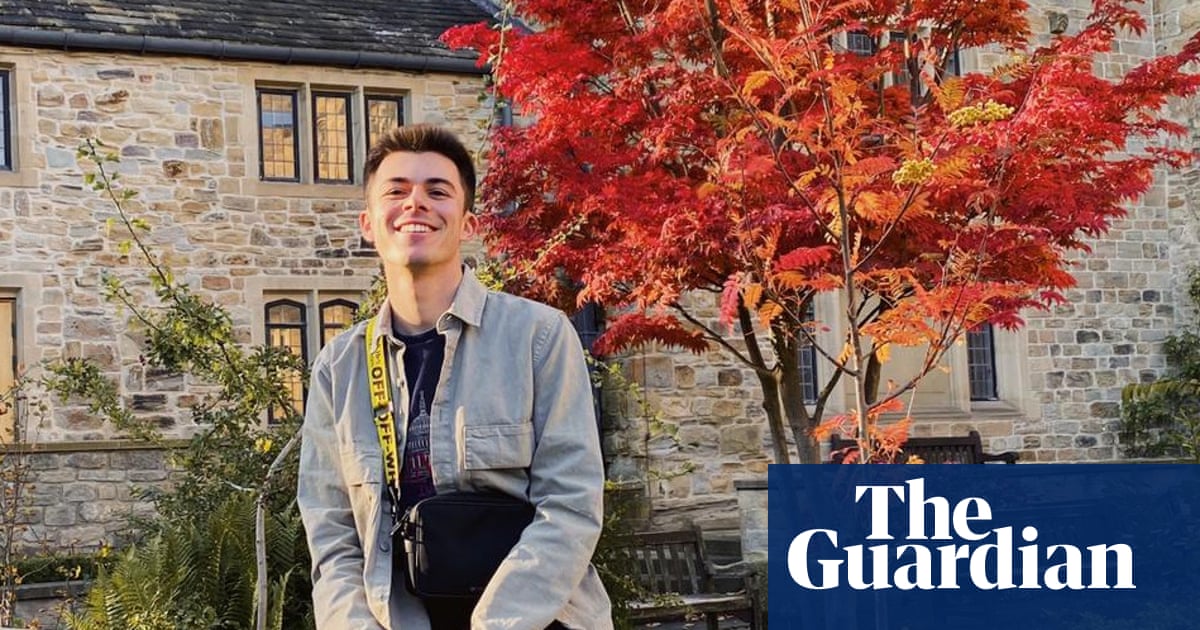The rise of EduTube: how social media influencers are shaping universities

When Jack Edwards uploads a video to YouTube about the highs and lows of his life as a Durham University student, it is watched by 162,000 subscribers. This year the college at which he studies, St Cuthbert’s, has been oversubscribed for the first time. He’s been told that the college principal thinks this is no coincidence: she’s calling it “the Jack Edwards effect”.
Despite his popularity, Edwards says people are often surprised to find he has no relationship with the university – for instance through speaking at open days or contributing to its prospectus. While he appreciates the authenticity this lends his videos, he thinks it’s a missed opportunity for Durham. “People are watching these videos and it gives them reassurance that [the university] is a good option,” he says.
Despite Edwards’s experience, YouTube is becoming an increasingly important platform for universities. Videos posted by the 20 universities with the highest-viewed content on the site were seen 58.9m times, according to social video measurement platform Tubular Labs; that’s only marginally more than the number of views on videos posted by independent influencers about universities (49.2m). And it’s a growing space: university-related content posted by influencers has seen views increase by 20% in the last year alone.
“Universities are looking to platforms that their target audiences spend the most time on. Viewership figures show that they’re finding those audiences on YouTube,” explains Denis Crushell, a managing director at Tubular Labs. “This will continue to develop into a crucial channel for educational content as well as promotional. We’re seeing that already with influencers and vloggers using the platform to talk about their experiences on campus, and tips on how to make the most out of university life.”
Like Edwards, Eve Cornwell, a 22-year-old trainee solicitor, is a successful vlogger who gained 239,0000 subscribers while studying at Bristol University and the University of Law. She considers herself part of a community of “EduTube” or “StudyTube” creators, who record themselves learning information for a test or completing an essay to inspire other students grappling with their workloads.
“I think universities and more traditional educational institutions are slowly realising the power that influencers can bring,” she says. “People like to watch another person online going through something similar to them – that idea of relatability. They can feel like they’re part of you learning, or graduating, or getting your degree.”
It’s not just students who are producing influential education content on YouTube – graduates and academics are too. Simon Clark, a 29-year-old graduate of Oxford and the University of Exeter, uploads physics, science and climate-based content to his 245,000 subscribers. His videos were among the first to feature on-screen citations – as if they were an academic paper – and go further in depth than many popular science videos. But they don’t shy away from pop culture either: one video posted last year used the laws of planetary physics to work out whether planets in the Star Wars universe could actually exist.
“Sometimes people just want to watch five minutes of a video and go, ‘Oh, that’s interesting!’. It’s a dinner party quote – the kind of thing you can say: ‘Did you know?’ rather than an education,” he says. He prefers his output to be academically rigorous: “I was frustrated seeing people do these pithy, 10-minute isolated videos.”
Clark’s channel inspired another popular science vlogger and physics graduate, Andrew Dotson, to set up an account covering some of the most complicated concepts in physics for 110,000 subscribers. But he’s noticed that putting science videos on YouTube doesn’t necessarily make the concepts more accessible. Out of his range of content, the funny videos taking a sideways look at science get millions of views, the vlogs of his university experience receive hundreds of thousands, and the educational physics clips usually just pull in a few thousand.
A challenge for viewers can be figuring out which videos are genuinely educational and which are hate speech or conspiracy packaged up as respectable content. Clark’s videos about the climate emergency (the subject of his PhD in theoretical atmospheric physics at Exeter) compete for views against those of climate change deniers who profess to be fellow EduTubers.
YouTube has heavily promoted its educational content, and last year announced £15m worth of investment in grants for creators providing high-quality output. But social media – YouTube included – often fails to identify problematic content. Stefan Molyneux, for instance, is a far-right nationalist YouTuber with nearly a million subscribers who claims that black people are genetically inferior. While PayPal has suspended his account, through which he received donations for his videos and podcast, YouTube is yet to do the same.
Likewise, a raft of purportedly educational documentaries peddle conspiracy theories about crucial historical events on YouTube, such as PragerU, which promotes highly conservative educational videos around race and gender under the guise of being educational.
For Dotson, the benefits of producing content that can help students understand a subject in more depth or decide which campus to spend three to four years of their life at outweigh the drawbacks. “I like to think I’m helping the people,” he says. He’s also sanguine about the fact his university hasn’t yet approached him to collaborate. “My goal isn’t to make the university run any more smoothly – it’s to help the students.”
from Hacker News https://www.theguardian.com/education/2019/dec/02/the-rise-of-edutube-how-social-media-influencers-are-shaping-universities